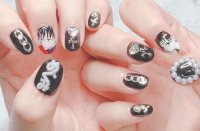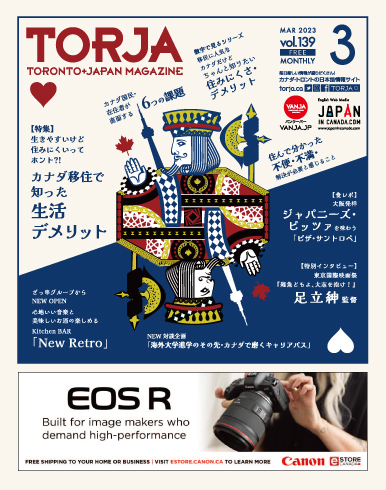On Tuesday, Kardashian shared images displaying pieces from her new shapewear line, ‘Kimono’ on Twitter and Instagram, writing: “This is a new approach to shapewear. Offering real solutions in 9 shades and sizes XXS-4XL, @kimonobody celebrates and enhances the shape and curves of women,” “Kimono is my take on shapewear and solutions for women that actually work.”
One is KIMONO. One is Kim shamelessly selling a line of shapewear. Which y’all don’t need. #kimono pic.twitter.com/6mP0oDqPvn
— Tamlyn Tomita (@thetamlyntomita) 2019年6月25日
Numerous social media users found the name of the brand ill-fitting and accused her for making a decision in appropriating the word “kimono”, a traditional Japanese garment. The “kimono”, according to the Victoria and Albert Museum, was originally worn by commoners in Japan and as an undergarment for members of the aristocracy. By the 16th century, it had become a widely-worn item of apparel for all classes. It is a long, loose garment with wide sleeves tied in the middle with a sash, called an “obi”. Her line of products has obviously no correlations with kimonos, removing the word from its cultural and historical contexts and appropriating Japanese culture.
The cultural appropriation of the kimono in fashion has had a long and complicated history since the late 1800’s; this phenomenon is nothing new. Name Monet’s La Japonaise, The Mikado, and Katy Perry’s “geisha” look—these are just a few of the many examples of orientalism. But contrary to what orientalists and western brands might believe, they are not just clothes but garments worn for celebrations, sacred ceremonies, and life’s milestones. The wearing of kimonos has with it family history and tradition.
To many Japanese Canadians and Japanese Americans, kimonos are pieces of a family’s history and a connection to their heritage. It’s also important to remember that nearly 120,000 Japanese Americans and 22,000 Japanese Canadians were affected after the bombing of Pearl Harbor in 1941, when citizens of Japanese descent were forced the relocation, robbed of the connection to their heritage and were taken to be put in internment camps. These people of Japanese descent were forced to choose between everyday essentials and items that were significant to their family when packing to move, and some took their kimonos, but others left them behind. Internment was a collective trauma that continues to have repercussions, with many vocal critics who argue it should never be repeated.
Responses of Online Users
It didn’t take long for netizens to point out that this is the latest in Kardashian’s history of being culturally insensitive. She was accused of blackface in ads for her beauty line, wore a traditional Indian maang tikka head jewelry this April, and has prompted cries after posting a series of pictures of her hair in braids known as Fulani braids more than once.
San Francisco-based Yuka Ohishi, who tweeted about the controversy told CNN: “I was not very pleased by companies using the word kimono to market beach cover-ups and robes. And then Kim Kardashian went to a whole new level by simply using the word as a pun. Her line is not at all inspired by the Japanese kimono, pays no respect.
“Kimonos are an important part of our culture — for me and my family, we have worn it to celebrate health and growth, engagements and marriages, to funerals. They are handed down from generations and cherished. For other Japanese people, it’s part of their everyday attire. “It makes me furious to think that Kim Kardashian’s brand would just take the name, try to trademark it, and use it to sell something completely irrelevant.” Yasuno Yoshizawa, also known as Bunkaiwa, is a Japanese “cross culture consultant” based in California.
Nice underwear, but as a Japanese woman who loves to wear our traditional dress,👘 kimono, I find the naming of your products baffling (since it has no resemblance to kimono), if not outright culturally offensive, especially if it’s merely a word play on your name. Pls reconsider
— Yuko Kato (@yukokato1701) 2019年6月26日
Someone described the range as “absolutely tasteless and awful”, saying the entrepreneur has “zero respect to the Japanese culture”. But what really nerved critics is that Kardashian appears to have filed paperwork last year to trademark the word “kimono” as well as “Kimono Body,” “Kimono Intimates” and “Kimono World”.
Mayor of Kyoto Asks Kim Kardashian to Drop Kimono Trademark
The mayor of Kyoto, Daisaku Kadokawa, issued a statement to Kardashian West on Friday, asking her to drop the trademark of Kimono for her new shapewear brand, which she revealed on Tuesday. “Kimono is a traditional ethnic dress fostered in our rich nature and history with our predecessors’ tireless endeavors and studies,” he wrote in the letter. “It is a culture that has been cherished and passed down with care in our living. Also, it is a fruit of craftsmanship and truly symbolizes sense of beauty, spirits and values of the Japanese.”
He went on to write that Kyoto is aiding in Japan’s initiatives to get “Kimono Culture” registered to UNESCO’s Intangible Cultural Heritage list, because the rich culture and heritage behind the garment shouldn’t be monopolize in the letter.
Kim Kardashian Defends Kimono Amidst backlash
Despite all these criticisms, Kim Kardashian has denied claims that her upcoming shapewear line culturally appropriates the Japanese kimono. In an interview with The New York Times, West said her line called, “Kimono Intimates,” is meant to be “a nod to the beauty and detail that goes into a garment,” but many of Kim’s followers are criticizing her, with #KimOhNo quickly trending. We must be mindful of how we interact with cultures and consider the histories and the people who wear their garments to present pride in their heritage. Maybe instead of making body suits with names lifted from other cultures, we should learn about them, and respectfully use what we learn in our practice instead.








































